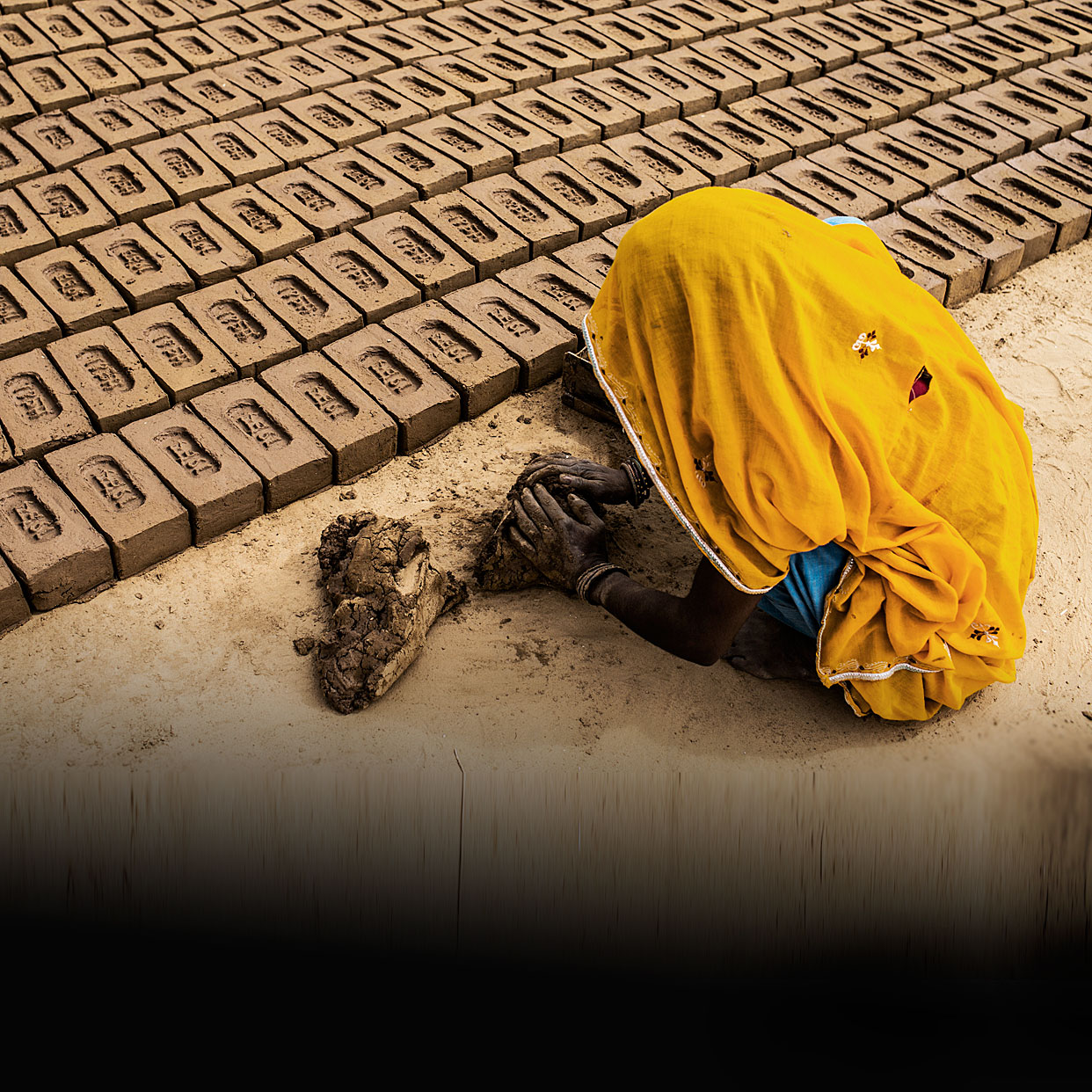Slavery on the rise: The ten worst offending countries
Global Slavery Index estimates that more than 46 million people are trapped around the world

A free daily email with the biggest news stories of the day – and the best features from TheWeek.com
You are now subscribed
Your newsletter sign-up was successful
More than 46 million people are trapped in some form of slavery, according to a new survey by an Australian human rights group.
The 2016 Global Slavery Index, funded by the Walk Free Foundation and backed by a host of high-profile figures, including Tony Blair, Sir Richard Branson and Bono, claims that the number of people born into servitude, trafficked for sex work or trapped in debt bondage has risen by nearly 30 per cent in just two years.
Walk Free's founder, billionaire business magnet Andrew Forrest, said that while the rise was in part due to more accurate methodology, he believed the number of people trapped was increasing each year.
The Week
Escape your echo chamber. Get the facts behind the news, plus analysis from multiple perspectives.

Sign up for The Week's Free Newsletters
From our morning news briefing to a weekly Good News Newsletter, get the best of The Week delivered directly to your inbox.
From our morning news briefing to a weekly Good News Newsletter, get the best of The Week delivered directly to your inbox.
"This isn't Aids or malaria, it is a man-made problem that can be solved," he said.The group found examples of slavery in all 167 countries it studied. India came top of the list in absolute terms, with 18.4 million people deemed to be in bondage, but North Korea had the highest rate. In total, 4.4 per cent of its 25 million people live in slavery.
The UK was estimated to have 11,700 people trapped, around 0.018 per cent of the population, putting it at 127 out of 167 on the worst offenders list in absolute terms.
Modern-day slavery "constitutes a huge illegal industry, deemed the third most profitable criminal industry behind drug and arms trafficking", says The Guardian, but data remains "patchy".
Walk Free has acknowledged past criticism of its own analysis techniques. Some researchers accused the index of "flawed methodology" by extrapolating on-the-ground surveys in some countries to estimate numbers for other nations, says Reuters.
A free daily email with the biggest news stories of the day – and the best features from TheWeek.com
The organisation's figure of 46 million is more than double that published by the International Labour Organisation, which tracks the number of people trapped in forced labour.
Forrest said the lack of data had held back past efforts to tackle the issue and argued that it was important to draw a "line in the sand" in order to drive action forward.
While Europe has the lowest regional prevalence of slavery, Walk Free said it was still a source and destination for forced labour and sexual exploitation.
The report praised "significant progress" made by some governments since the publication of the last report in 2014. Last year, Britain passed the Modern Slavery Act, while the US amended a law to ban the import of goods made using forced labour or child workers.
But Fiona David, the executive director of global research at Walk Free, told Deutsche Welle that businesses must step up their efforts to tackle slavery in the global supply chain.
These are the worst offenders by absolute number of people:
India (18,354,700 estimated to be held in modern slavery)China (3,388,400)Pakistan (2,134,900)Bangladesh (1,531,300)Uzbekistan (1,236,600)North Korea (1,100,000)Russia (1,048,500)Nigeria (875,500)Democratic Republic of the Congo (873,100)Indonesia (736,100)
These are the worst offenders by estimated percent of population:
North Korea (4.373)Uzbekistan (3.973)Cambodia (1.648)India (1.400)Qatar (1.356)Pakistan (1.130)Democratic Republic of the Congo (1.130)Sudan (1.130)Iraq (1.130)Afghanistan (1.130)
Yemen, Syria, South Sudan, Somalia, Libya and Central African Republic also had scores of 1.130
-
 The ‘ravenous’ demand for Cornish minerals
The ‘ravenous’ demand for Cornish mineralsUnder the Radar Growing need for critical minerals to power tech has intensified ‘appetite’ for lithium, which could be a ‘huge boon’ for local economy
-
 Why are election experts taking Trump’s midterm threats seriously?
Why are election experts taking Trump’s midterm threats seriously?IN THE SPOTLIGHT As the president muses about polling place deployments and a centralized electoral system aimed at one-party control, lawmakers are taking this administration at its word
-
 ‘Restaurateurs have become millionaires’
‘Restaurateurs have become millionaires’Instant Opinion Opinion, comment and editorials of the day
-
 Epstein files topple law CEO, roil UK government
Epstein files topple law CEO, roil UK governmentSpeed Read Peter Mandelson, Britain’s former ambassador to the US, is caught up in the scandal
-
 Iran and US prepare to meet after skirmishes
Iran and US prepare to meet after skirmishesSpeed Read The incident comes amid heightened tensions in the Middle East
-
 Israel retrieves final hostage’s body from Gaza
Israel retrieves final hostage’s body from GazaSpeed Read The 24-year-old police officer was killed during the initial Hamas attack
-
 China’s Xi targets top general in growing purge
China’s Xi targets top general in growing purgeSpeed Read Zhang Youxia is being investigated over ‘grave violations’ of the law
-
 Panama and Canada are negotiating over a crucial copper mine
Panama and Canada are negotiating over a crucial copper mineIn the Spotlight Panama is set to make a final decision on the mine this summer
-
 Why Greenland’s natural resources are nearly impossible to mine
Why Greenland’s natural resources are nearly impossible to mineThe Explainer The country’s natural landscape makes the task extremely difficult
-
 Iran cuts internet as protests escalate
Iran cuts internet as protests escalateSpeed Reada Government buildings across the country have been set on fire
-
 US nabs ‘shadow’ tanker claimed by Russia
US nabs ‘shadow’ tanker claimed by RussiaSpeed Read The ship was one of two vessels seized by the US military